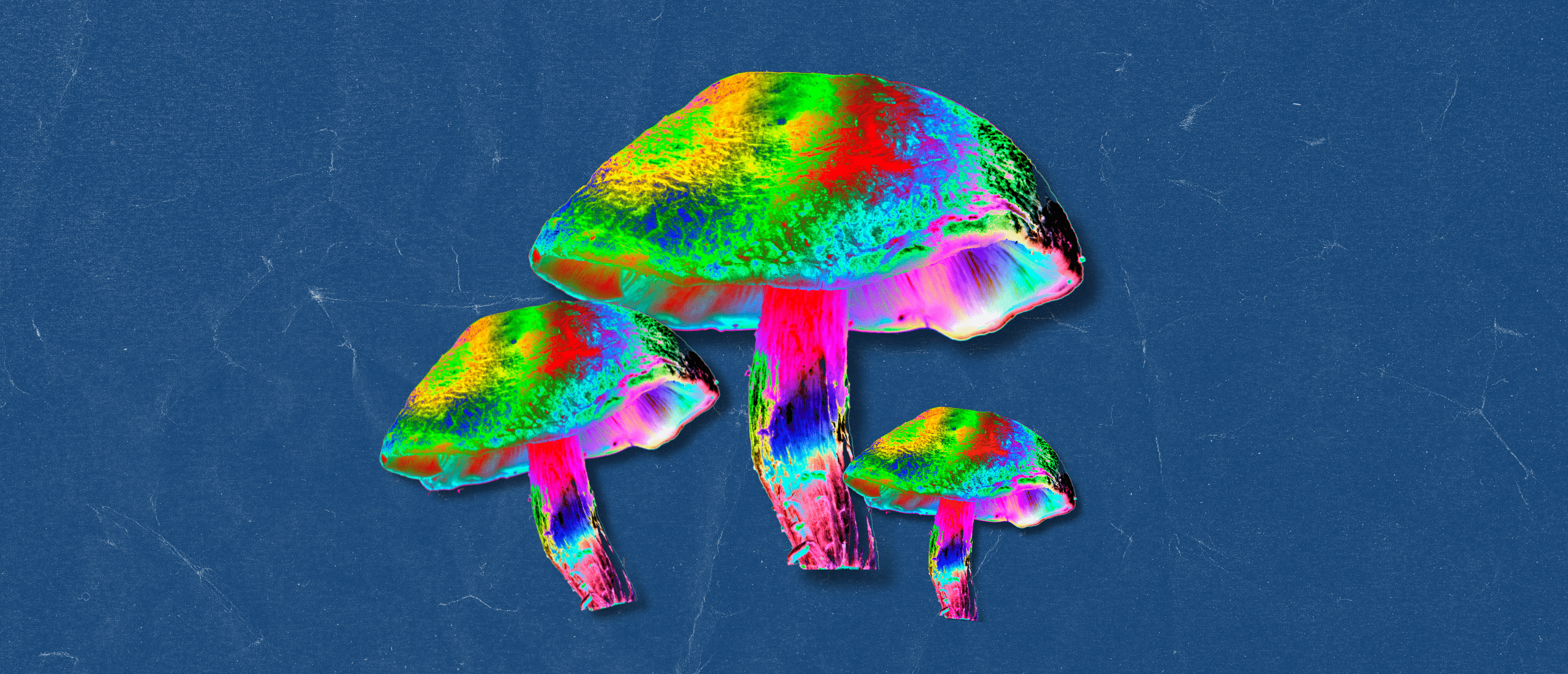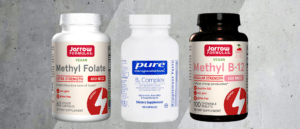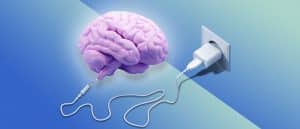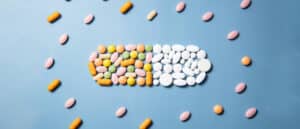How Psychedelic Therapy Can Boost Your Healthspan, According to Longevity Experts
M
usic festivals and tropical mindfulness retreats aren’t the only place you’ll find psychedelics like DMT, LSD, and psilocybin. Soon, these hallucinogenic drugs may be a part of a standard treatment protocol for post-traumatic stress disorder (PTSD), and treatment-resistant depression—conditions which, if left untreated, can shorten your life
People with treatment resistant depression are at an increased risk for an early death, particularly from suicide (1). And PTSD has been directly linked to accelerated aging: One study found that the condition was associated with three signals of sped-up aging: shortened telomeres, inflammation markers, and higher rates of chronic disease like type 2 diabetes, dementia, and cardiovascular disease (2).
A combination of antidepressant drugs and therapy can help with both conditions. But over the past few years, research has suggested that just a few doses of psychedelics like ketamine, psilocybin, or MDMA might help people struggling with these mental illnesses (3). The studies have been promising, in fact, that the FDA has given certain psychedelic treatments priority status (4).
Beyond improving mental health, psychedelics, used at the appropriate dose and under the oversight of a healthcare professional may also improve neuroplasticity and reduce inflammation, which may help stave off neurodegenerative diseases like Alzheimer’s and dementia (5).
Longevity experts, like physician Peter Attia, M.D., and Andrew Huberman, Ph.D., break down the science on how psychedelic-supported psychotherapy (no home-grown shrooms, dear reader) could benefit your brain.
Brain Health Benefits of Psychedelics, According to Longevity Experts
Improves neuroplasticity
Psychedelics may give you more than a temporary change of perspective. Research shows that therapeutic use of hallucinogenic drugs like LSD, psilocybin (the chemical in magic mushrooms that makes you high), DMT, and ketamine may improve neuroplasticity (6).
Neuroplasticity is your brain’s ability to form new neural connections and rewire itself, which slows as you age (7). A decrease in neuroplasticity may lead to depression and cognitive decline.
“There are lots of different processes involved with neuroplasticity,” Huberman says on an episode of the HubermanLab podcast. Psychedelics induce neuroplasticity by “strengthening” new neural connections or by “weakening” of other neural connections, like those that store PTSD triggers and phobias.
Psychedelics activate brain networks more broadly than they would normally be activated. “These are very abnormal patterns of thinking and perceiving,” says neuroscientist Andrew Huberman on the HubermanLab podcast. “And yet so often the outcomes are positive, even though [the experience] may have anxiety-evoking moments within it.”
Psilocybin may be particularly powerful here. According to Huberman, improved neuroplasticity from psilocybin use may “lead to long-lasting shifts in our emotional, cognitive and behavioral patterns and abilities.”
“I had a guided psilocybin experience at a very high dose where I experienced a complete dissolution of my ego,” says How to Change Your Mind author Michael Pollan. “There is good evidence that a single psilocybin trip, if you do have this ego dissolution experience, will leave you more open than you were before.”
Treats mental illness
The boosted neuroplasticity that occurs during psychedelic sessions may also improve the effectiveness of psychotherapy for patients with treatment-resistant depression and chronic PTSD (8).
For example, someone undergoing psychedelic therapy for PTSD may find that the drug temporarily reduces their fear response or connection to a specific trigger. This gives psychotherapy a better chance at success.
SSRIs, one of the frontline treatments for depression and PTSD, are thought to work by increasing levels of serotonin—a hormone responsible for mood regulation—in the brain.
Psychedelics appear to work differently. A study co-authored by psychedelic researcher David Nutt in 2017 concluded that psychedelics disrupt cortical processing (9). Nutt believes that this mechanism allows psychedelics to disrupt intrusive thoughts, persistent ruminations, and other depressive thought patterns. Plus, psychedelic therapy lacks many of the side effects associated with SSRIs like loss of libido, difficulty reaching orgasm, weight gain, and agitation (10).
“If there is a way to give somebody 25 milligrams of psilocybin and get the same antidepressive benefits, but without the side effects [of antidepressants], this is very exciting,” longevity expert Peter Attia tells Nutt on an episode of The Drive podcast. “This needs to be explored a heck of a lot further.”
Nutt and Attia also point to research that psychedelics—like psilocybin, LSD, and DMT—can help treat addiction by disrupting the compulsion to engage in certain behaviors like drinking or smoking (11).
“LSD was a revolution in the treatment of alcoholism in the [60s]. Now in the 50 years since LSD’s been banned, you can make a rough calculation worldwide,” Nutt says. “Over a hundred million people have died prematurely from alcohol use disorder. And if LSD helped perhaps just 10 percent of them, that would be 10 million lives saved.”
May lower inflammation
A small body of recent research has poised psychedelics as a potential anti-inflammatory therapy, which could be used to treat autoimmune illnesses and long-COVID (12).
Inflammation may also be a pathway to depression, according to a study that found that 30 percent of depressed participants had low-grade inflammation (13). Plus, inflammation is linked to reduced effectiveness of antidepressants (14). This could be why people with treatment-resistant depression report success using psychedelics as part of their treatment plan.
And then there’s this: Chronic, low-grade inflammation—or inflammaging—is also heavily linked to what Attia calls the “four horsemen” of chronic illness: metabolic dysfunction, neurodegenerative disease, certain types of cancer, and cardiovascular disease. Decreasing inflammation can reduce your biological age and lower the likelihood of developing these life-shortening conditions.
References
1. Madsen, et al (2021). Cause-specific life years lost in individuals with treatment-resistant depression: A Danish nationwide register-based cohort study.
2. Lohr, et al (2015). Is Post-Traumatic Stress Disorder Associated with Premature Senescence? A Review of the Literature.
3. Krediet, et al (2020). Reviewing the Potential of Psychedelics for the Treatment of PTSD.
4. FDA (2018). Breakthrough Therapy.
5. Chitnis, et al (2017). CNS inflammation and neurodegeneration.
6. Vos, et al (2021). Psychedelics and Neuroplasticity: A Systematic Review Unraveling the Biological Underpinnings of Psychedelics.
7. Pauwels, et al (2018). Aging and brain plasticity.
8. Roseman, et al (2017). Quality of Acute Psychedelic Experience Predicts Therapeutic Efficacy of Psilocybin for Treatment-Resistant Depression.
9. Carhart-Harris, et al (2017). Serotonin and brain function: a tale of two receptors.
10. Ferguson (2001). SSRI Antidepressant Medications: Adverse Effects and Tolerability.
11. Krebs, et al (2011). Lysergic acid diethylamide (LSD) for alcoholism: meta-analysis of randomized controlled trials.
12. Thompson, et al (2020). Psychedelics as a novel approach to treating autoimmune conditions.
13. Osimo, et al (2019). Prevalence of low-grade inflammation in depression: a systematic review and meta-analysis of CRP levels.
14. Chamberlain, et al (2018). Treatment-resistant depression and peripheral C-reactive protein.














